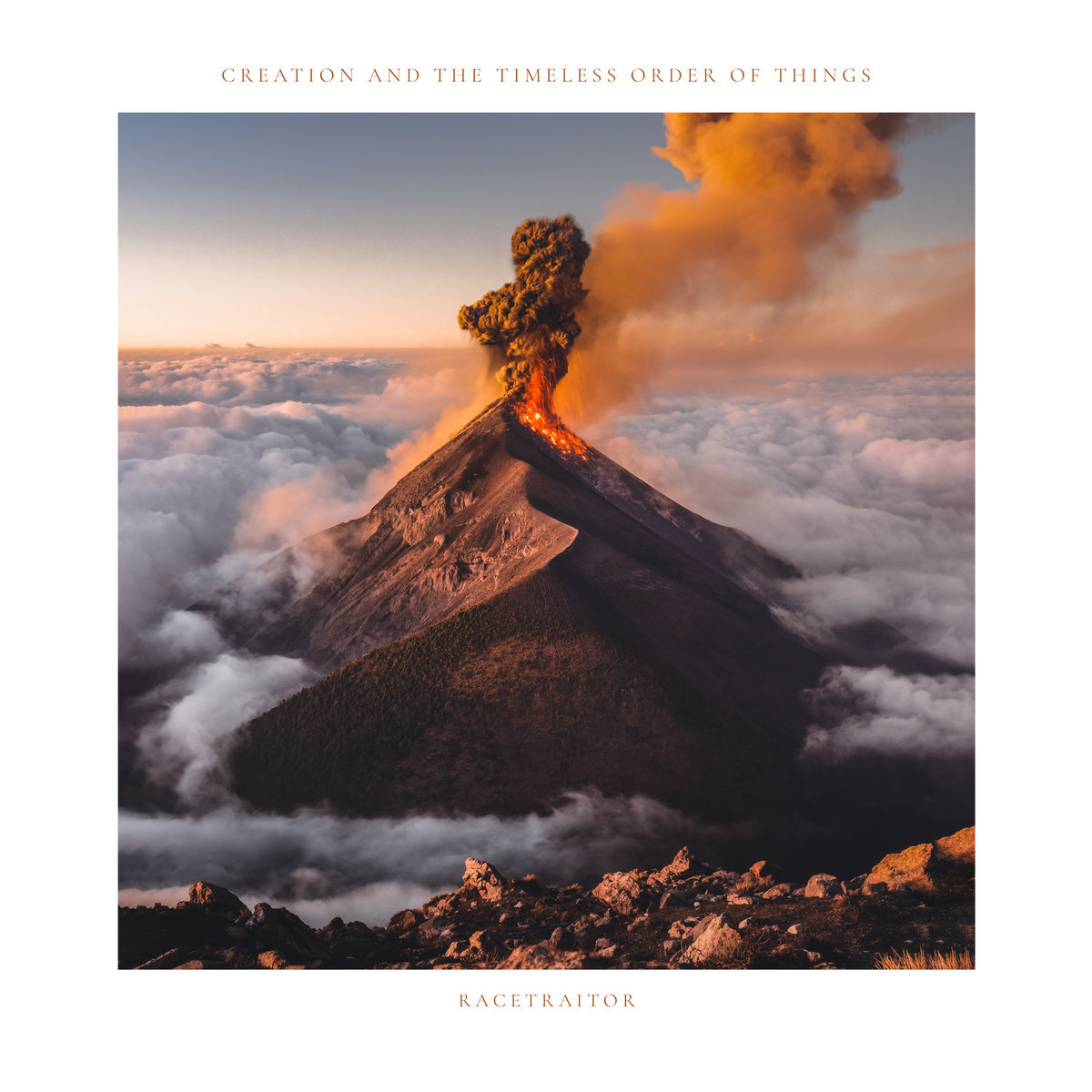Racetraitor
Creation and the Timeless Order of Things
GOOD FIGHT
One of the great honors in life is inspiring someone to write about you, turning whatever (usually ephemeral) feeling you instilled in them into something that could, potentially, last forever. It doesn’t matter if that inspiration is ultimately negative (think of all the great bitter love songs inspired by heartbreak, for instance) because at the time of creation it means you made a profound impression on that person. Perhaps it was ever-incisive anti-folk hero Jeffrey Lewis and his “Chelsea Hotel Oral Sex Song” that captured that sentiment best: “The next time you’re feeling kinda lonesome and blue / Just think that someone somewhere might be singing about you.”
Indeed, just after Racetraitor broke up in 1999, having only formed a few years prior, that kind of happened to them. The hyper-political Chicago hard-/grind-/metalcore outfit—whose politically radical songs, if you couldn’t tell by the title of their debut album Burn the Idol of the White Messiah, focused heavily on systemic, rather than overt, racism—had for whatever reason aggrieved some in the heavy scene due to their politics. Indeed, so incensed were the members of mathcore icons Botch that their final album, released the same year that Racetraitor called it a day, contained a song about allegedly them. “C. Thomas Howell as the ‘Soul Man’” doesn’t explicitly mention Racetraitor in the lyrics, but was directed toward them as it took issue with bands who engage in performative activism and who use a cause as a gimmick to gain fans rather than actually backing the cause itself. This was shortly before a certain alumni of Racetraitor named Pete Wentz went on to form Fall Out Boy, which Racetraitor drummer Andrew Hurley also joined a little later—surely something of a larger crime.
In 2016, Racetraitor got back together, and while Hurley remains a member, Wentz does not. Creation and the Timeless Order of Things is the band’s second post-reunion record, and is no less focused on systemic injustice than their previous work, though these 13 songs speak to (or, rather, against) oppressive systems the world over, not just the good ol’ USA. First track “Eid,” for example, incorporates elements of Persian classical music into its extreme folds (both vocalist Mani Mostofi and guitarist Dan Binaei are children of Iranian immigrants). Just to ram the point home, the song features a cameo from UK-Iranian vocalist Patrick Hassan, formerly of now-defunct metallic hardcore outfit xRepentancex.
He’s one of many guests on this album alongside Refused’s Dennis Lyxzén on the intense hardcore noise collage “Pastoral Monolith,” Sanket Lama from NY-based Nepalese grindcore outfit Chepang on the unrelentingly brutal “Sword,” Joan of Arc’s Tim Kinsella on the relatively calm (but still intensely furious) “Black Creek/Red River,” and a haunting performance from Carrie Gerardi on the equally calming and disturbing sludge of “Cape Rerenga.” And while you might not be able to make out all (if any) of the lyrics, the sense of restlessness and discontent is overwhelmingly powerful, to the extent that you can almost hear the effects of systemic oppression within these songs. Indeed, at times, it sounds like victims of slavery and colonization throughout history fighting to get free of their shackles.
Needless to say, it’s incredibly visceral, powerful, and important. Given everything the modern world has revealed to be true in recent years about systemic oppression and the racist violence of capitalism, it also demonstrates that, as great as that Botch song is, they were absolutely wrong. Racetraitor have been waging the correct war all along. Long may they continue.







